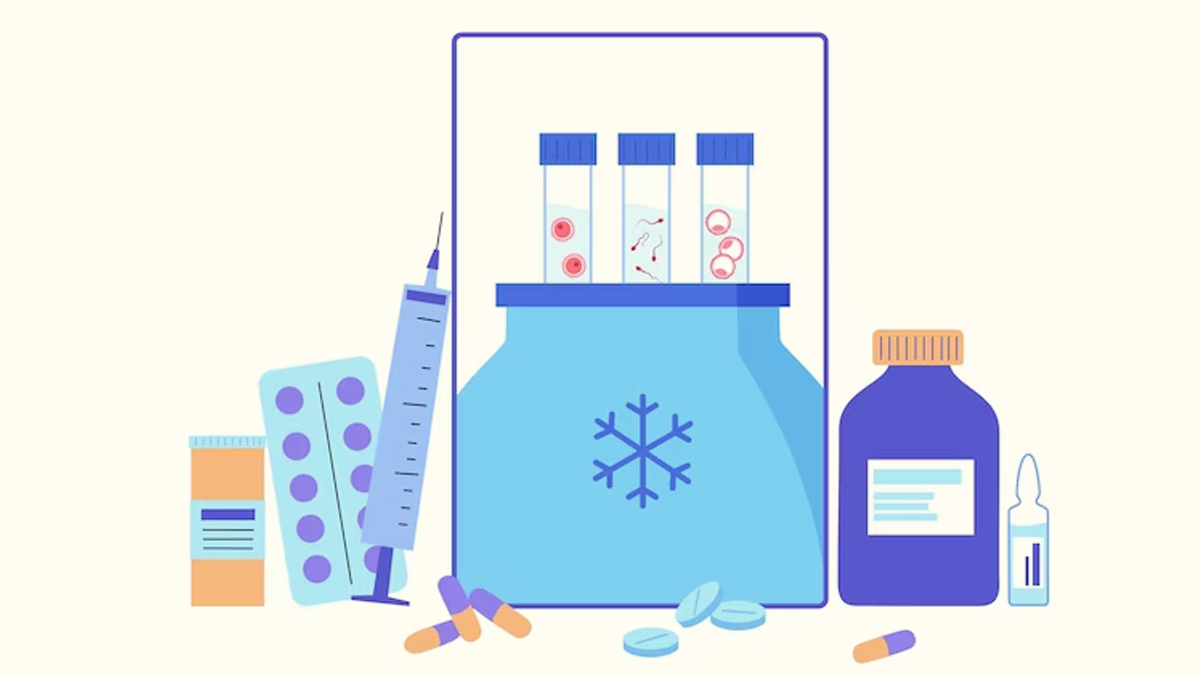
Egg Freezing is a medical procedure in which eggs are harvested and frozen. In future, once a woman is ready to conceive, the frozen eggs can be fertilised for the implant. The quality of the eggs also remains intact.
Table of Content:-
Egg freezing provides a viable time option for those who want to preserve their fertility and extend their biological clock. Once the fertility window closes, the eggs are no longer viable. The ability to carry a pregnancy lasts for many years later.
To know more about egg freezing in detail, we talked to Dr Nisha Bhatnagar MBBS, MD, Medical Director, Infinite Fertility Wellness Centre.
What Is The Current Status Of Awareness And People Taking Up Egg Freezing In India?
According to Dr Bhatnagar, egg freezing should be discussed and encouraged, to spread the information and normalise this conversation. By the day, more and more people are becoming aware of the significance of this procedure. However, there is still a long way to go. The lifestyle of mid and high-class Indian women has dramatically changed over the years. The volume of those who opt for egg freezing is still minimal.
“I can predict that 5 years from now, most mid and high-class females at the age of 30 who will realise they are not ready for parenthood, will opt for egg freezing”, says Dr Bhatnagar.
Is Egg Freezing Better Than IVF?
Egg freezing is a process where unfertilised eggs are frozen for future use. IVF or Invitro fertilisation is a process where you fertilise eggs in the lab. Egg freezing is usually performed when you are currently not opting for pregnancy and when you are not sure who will be your male partner for parenting.
Also read: 5 Indian Celebs Who Opted For Egg Freezing
For IVF both eggs and sperm are required to conceive. Social egg freezing is an elective procedure to help you choose for yourself the right time for you to become a parent (and it is not now).

There is no reason to assume any infertility issue when opting for egg freezing. IVF is a treatment offered for patients (typically couples) who suffer from infertility.
What Is The Success Rate Of Egg Freezing And Comparison With IVF Rates?
IVF and egg freezing are two distinct procedures. The success rate is heavily influenced by the quality of the eggs. As a general rule, freezing your eggs earlier will result in a higher success percentage than freezing them later. When comparing the success rates of frozen eggs and IVF in the same woman at the same age, they are equivalent after a healthy embryo is generated (albeit on average, a few more frozen eggs may be required to get the same number of embryos).
Who May Consider Egg Freezing?
Following are the aspects that should be considered before going for egg freezing:
- Any woman who has decided to get pregnant after the age of 35, it is best if she has frozen her eggs (the earlier the better).
- If you are between the age of 25-35 and not sure of if and when you will start your family, you should start with ‘Fertility Assessment’. A set of hormonal tests, follicular ultrasound, family and medical history, combined with your age can provide a good estimate of your current fertility status.
- If you are 35 and above and you know you still (or might) want to get pregnant in the future, you should opt for egg freezing as soon as possible.
Also read: Egg Freezing: 7 things You Need To Know About About Egg Freezing From A Specialist
Are There Any Limitations To This Procedure?
“Medically speaking, frozen eggs have no expiry day. They can be preserved (assuming right conditions) for as long as needed. There are babies born after being frozen for three decades”, Dr Bhatnagar added.

Fertility Assessment is required to identify your fertility. Each woman is limited by the fertility window. Typically, it starts declining steeply in your late 30s and completely closes before the age of 45. However, each woman is different and for some women the window may close much earlier. That’s why it is extremely important to get assessed, even at a younger age, you might find out that it is getting late, and an immediate action is required to secure your future fertility.
Also watch this video
How we keep this article up to date:
We work with experts and keep a close eye on the latest in health and wellness. Whenever there is a new research or helpful information, we update our articles with accurate and useful advice.
Current Version